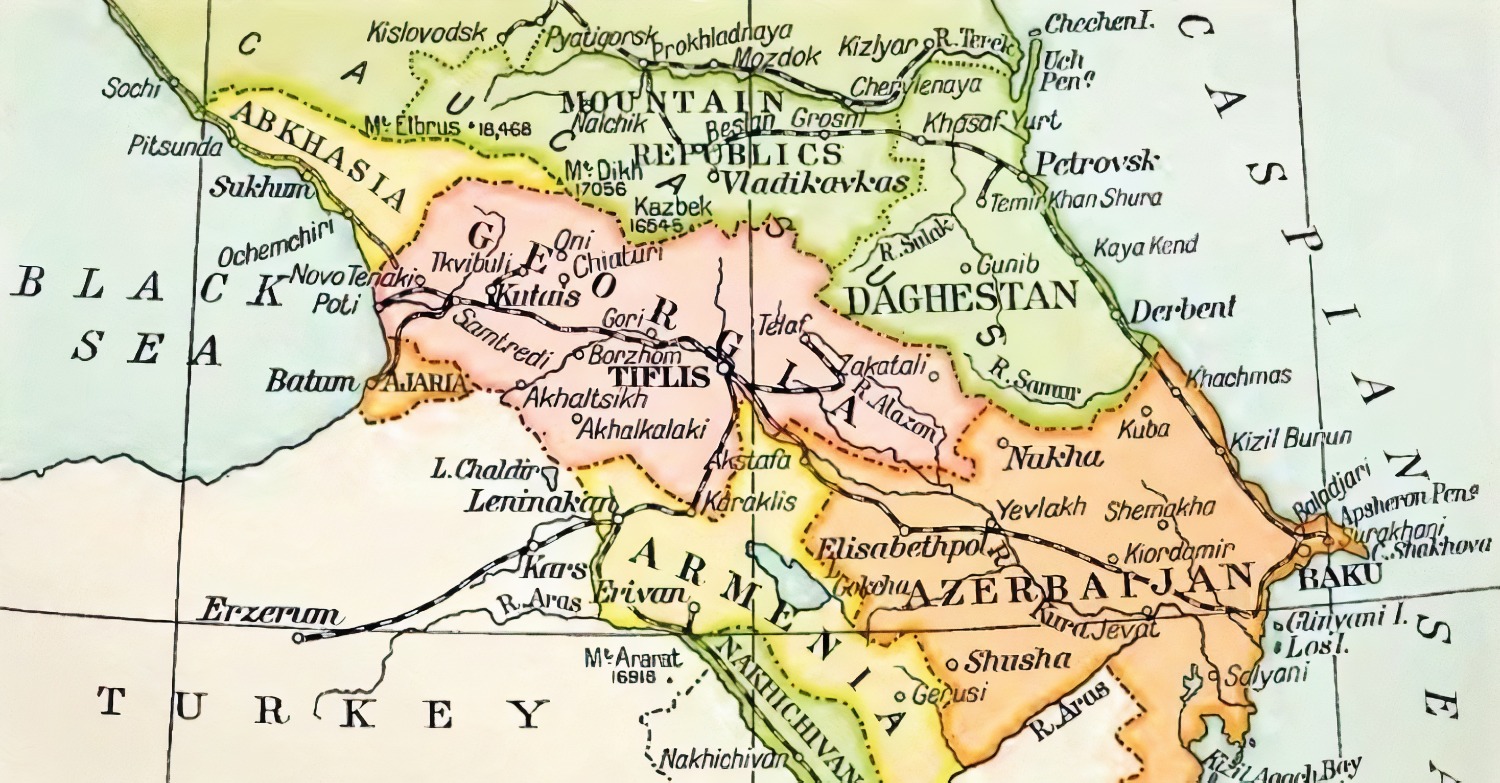Geopolitical Aspects of the Abkhazian Statehood: Some Results and Perspectives, by Viacheslav Chirikba

From the book: Trans-Caucasia by Harold Buxton (1926)
Iran & the Caucasus
Vol. 8, No. 2 (2004), pp. 341-349
After the disintegration of the Soviet Union in December 1991 along with 15 former union republics, which have been recognized by the United Nations and other states, at nearly the same time several other states were formed, which separated from the former union republics and which have since been effectively independent. These states at the time of the disintegration of the Soviet Union did not possess the status of union republics and consequently did not receive any diplomatic recognition from Russia or other states around the world. Thus, at the beginning of the 1990's, the unrecognized states Taiwan and the Turkish Republic of Northern Cyprus were joined by South Ossetia, Transdnestria, Nagorno Karabakh and Abkhazia. My paper is de- voted to the analysis of the geopolitical situation and some perspectives for the development concerning one of these states, the Republic of Abkhazia.
First of all, I would like to touch upon the terminology, which has some currency in reference to unrecognized states. They are often called, especially in the media, "self-proclaimed states". It is necessary to emphasize that this term is not simply inexact or incorrect, but is quite absurd, as any state is "self-proclaimed". It would be strange, if states did not proclaim themselves but were proclaimed by someone else. Even less felicitous, to my view, is the sometimes used term "quasi-state". Take, for instance, Abkhazia, which possesses all the at- tributes of a state (territory, distinct borders, a permanent population, authorities exercising control over the territory of the state, the ability to enter into international relations, the absence of foreign control, etc.), minus recognition, which, from the point of view of the Declara- tive Theory, is relevant for its qualification as a state. By both territory and population Abkhazia is approximately equal to Cyprus, and it is bigger than Malta, both of which are recognized states and the mem- bers of the European Union and the United Nations. Moreover, even some recognized states could envy the political stability (at least, until recently), internal coherence and economic potential of Abkhazia. The fact is that unrecognized states can possess a stable political system and sometimes even prosper economically. Another, and a more obvious example is the unrecognized Taiwan, which is one of the economically most advanced countries of the world.
What, then, renders the state of Abkhazia a "quasi-state"? Only the absence of recognition? But the presence or the absence of external recognition can neither create nor nullify a state, which exists irrespec- tive of these factors. Many currently existing states were also unrecog- nized a certain time ago, but they were nevertheless quite real states. Therefore, I would rather regard the term "quasi-state" as fraught with subjective connotations. The sometimes used term "separatist state" is also not wholly felicitous, as, again, any state is in essence separatist, as it tries to maintain its separateness from other states and normally does not want to become a part of another state. The terms "unrecognized state" or "de facto state" seem to be somewhat more neutral and appropriate in this respect.
The full text in PDF can be downloaded by clicking here (102 KB)